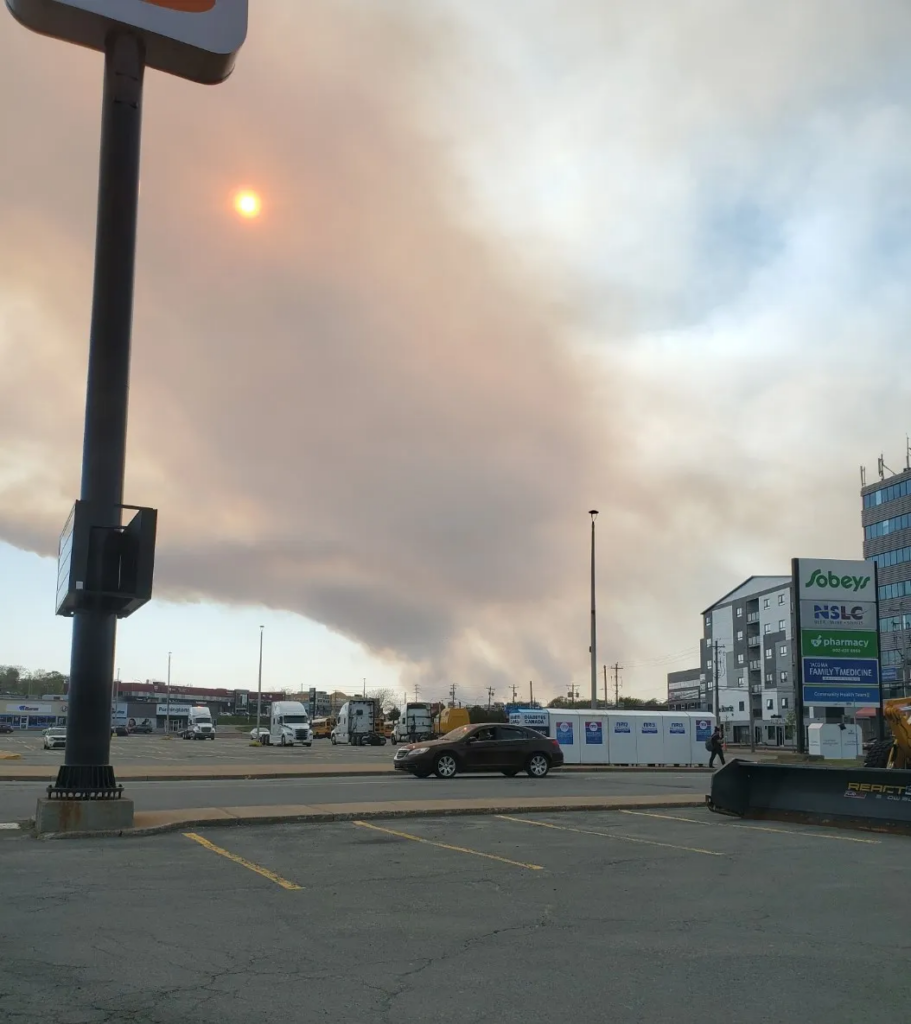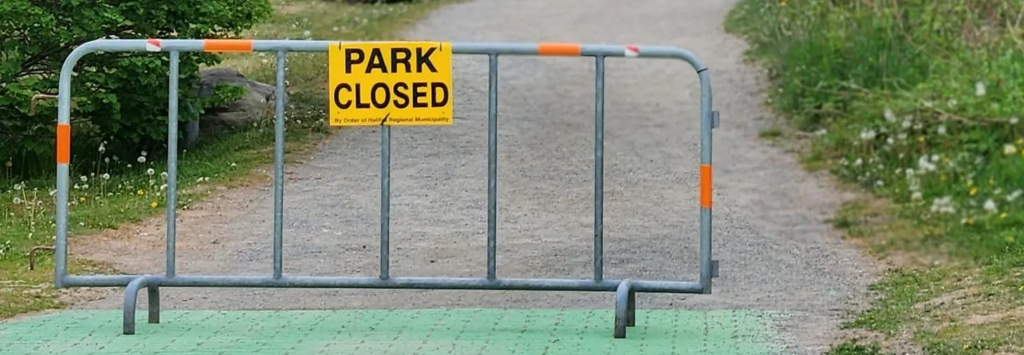
Nova Scotia’s Wildfire Response
Original Post: Nova Scotia’s Wildfire Response – by Oliver Cresswell (substack.com)
How crisis mismanagement is becoming the “new normal”
Fires are still raging across Canada. A large area of Upper Tantallon was the first area in Nova Scotia to burn on Sunday May 28th, followed swiftly by the ongoing fire in Shelburne. At one point there were 10 fires raging across Nova Scotia in the past few weeks, with hundreds more across the country.

It is interesting to note that, not only is the timing of these measures eerily synchronistic to those first COVID measures, but they also curtailed our everyday freedom in a similar manner. Three years ago our use of trails and parks was prohibited to prevent the spread of a disease, this year our use of trails and parks has been prohibited to prevent the spread of fires.
The Nova Scotia government issued a fire ban on Monday May 29th and then on Tuesday May 30th issued a province-wide “All Woods Ban”, because apparently the former didn’t stop people from setting fires. This meant no hiking, no fishing, no camping, no kayaking in any wooded areas. I don’t know how many fires have “fishing” listed as a cause, but it surely can’t be many.
Thankfully though, this has at last been lifted, along with the fire ban, as of June 13th, though some restrictions on burning are still in place.
During the ban that prohibited any and all activity in the woods, the authorities took to taping off trails with yellow caution tape in much the same fashion as they taped off playgrounds at the beginning of COVID back in 2020. They even closed off residential trails that connect one street or neighbourhood to another.

But the similarities don’t end there. The restrictions recently enacted also further disadvantage underprivileged people just as the COVID measures unfairly disadvantaged low-income households. While having children stay home for online learning might have been fine if you were a family with multiple computers or the time to make that happen, it was a different matter entirely for families without the same access or means.
In the same way, the ban on all activity in the woods doesn’t stop you from going into your own woods on your own land (if you are privileged enough to have some), but with the ban applying to public woods and Crown land, those without such privilege receive the short end of the stick. Again.
While this isn’t the first time that Nova Scotia has issued a restriction on activity in the woods, the action feels for many like a return to the bleakness that was 2020/2021/2022, with governments resorting to a restriction on individual freedom as the solution to a current problem. It also doesn’t help that masks were encouraged once again by various media outlets and politicians.
So was it another example of government overreach? Well, Nova Scotia’s Forests Act section 25 (1) does allow the Minister to declare “a restricted travel zone in any area of woods upon which no person shall enter for the purpose of travelling, camping, fishing or picnicking, or any other purpose, without a travel permit.” And as the news release stated, and as s. 25 (3) declares, this doesn’t apply to the owner or occupier of woods.
But does that mean I can’t have friends over to my woods if I own woods, as the News Release from the Department of Natural Resources states? Or are they stretching the truth a bit?
And what are the woods for the urbanites among us? They are respite, they are escape. They are the wild places (curated though some may be) in which we can stretch our legs and exchange our breath with the trees. And just like that, unelected government officials restricted people from accessing that. Again.
As this was all happening, Nova Scotia’s Premier claimed that “every resource is being deployed” to fight the ongoing fires, and more could be deployed as they were made available – and yet that wasn’t exactly true.
Peter MacIsaac, a retired forest technologist with the Department of Natural Resources for 29 years, recently released a video that quickly amassed over 176 million views across various social media platforms.
In a telephone conversation with Peter, he informed me that the issuing of restrictions on all activity in the woods, and the province-wide fire ban, actually hampered the province from moving DNR personnel from one region to another to help with the ongoing fires in Tantallon and Shelburne. This may have contributed to the overwhelm and understaffing he was informed of by contacts at the sites of the fires.
Peter put together a team of half a dozen retired men with a total of about 200 years experience dealing with forest fire situations, to be hired by the province on a temporary basis to help with fire suppression in the province. If it was as bad as the Premier was telling us, surely his offer would be accepted, and it’s not uncommon for the government to hire back retired professionals.
But no. After contacting Shubenacadie Fire Control on May 30th, and sending an email directly to both the Premier, Tim Houston, and the Minister of Natural Resources and Renewables, Tory Rushton, Peter received the silent treatment, until he called Tory Rushton’s office on Thursday June 1st. He was told that the “province would not be hiring independent fire fighters.”
Peter also said he sent the same email he sent to the Premier and the Minister of Natural Resources and Renewables to Heidi Petracek, a reporter for CTV News, because he wanted both officials to know that his offer, and their lack of acceptance of it, had gone to the press. As interested in the story as Heidi was, apparently her editor did not want to run with it.
I asked Peter about the costs of his team compared to the cost of the teams being flown in from the U.S, Costa Rica and the like. He claimed that in his offer he asked for technical wages and expenses to be covered, which is what the tax-payers would have to pay the foreign aid, only we’d start paying firefighters from abroad as soon as the call for help was accepted – airfare included. This means that rather than accept local and immediate help from retired Nova Scotian professionals ready and willing to join the wildfire fight, the government chose to recruit delayed help from other countries at a higher cost.
Of course there’s no reason that both options couldn’t have been enacted, if help was sincerely wanted. And MacIsaac wasn’t the only retired DNR professional trying to offer help: he told me that another contact of his had put together a team independently, and was also declined.
To date, Peter has received no response from either Tim Houston, or Tory Rushton.
So once again, just as with COVID, we have a situation that affects the Nova Scotian community, broadly speaking, which is touted by the media and politicians to be terribly dire. And once again the solution to the situation is for ordinary people to sit tight in their homes, and wear masks while the authorities refuse to listen to experienced professionals who know a thing or two.
Mismanagement is the new-normal.







Great piece Oliver!